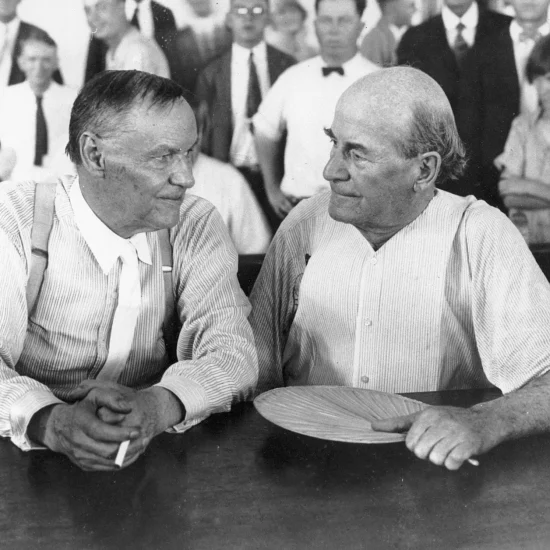
There are currently two sets of virtues competing in American politics: cruelty virtues and empathy virtues. Cruelty virtues had for centuries been baptized as a major vice but have now become an asset for many politicians. Empathy virtues, on the other hand, are those born out of the ancient cardinal virtues of the church — whether you are kind, hospitable, generous, or helpful.

Rodney Kennedy
We have all been taught that the empathy virtues, rooted in the teaching of Jesus, are preferable to the cruel ones. The Good Samaritan has always been with us. “Give to those who ask” whispers in our ears. Whether secular empathy or Christian empathy, we have all been schooled in empathy virtues. But our political climate has turned ugly and warlike, fueled by political consultants and advertising gurus teaching the skills and strategies you need to achieve political power and win elections.
The bully pulpit of yesteryear has been replaced by bully politics. There’s a sense that the ancient Roman production of spectacles has returned in a new disguise in American politics. Our representatives are now verbal gladiators instead of old-fashioned glad-handers. The spectacles of cruelty may merely mask our deep insecurities, our fear that we don’t belong, and our loneliness. The tragedy is that this comedic performance creates the opposite: melancholy and depression.
George Lakoff, in The Political Mind, argues that behind every “progressive policy lies a single moral value: empathy.” Empathy produces caring about others. The results of the empathy virtues have been social security, public health and disease control, safe food, disaster relief, health care, consumer and worker protection, and environmental protection. President Obama once suggested that we suffer from an empathy deficit — a failure to care, both about each other and others. Rush Limbaugh countered this by claiming that we suffer from “compassion fatigue.”
The cruelty virtues don’t produce policies that protect and empower people. They have a tendency to promote the well-being of a substantial minority of the population. If you concentrate only on cruelty virtues, you lose a moral compass. The road of cruelty opens at last onto the interstate of treating people as less than human.
Hanna Arendt, in her important work on totalitarianism, spoke of the post-World War I authors and intellectuals that “to them violence, power, cruelty, were the supreme capacities of men who have definitely lost their place in the universe. … They were satisfied with blind partisanship in anything that respectable society had banned … and they elevated cruelty to a major virtue because it contradicted society’s humanitarian and liberal hypocrisy.”
Cruelty virtues are “covered” by what passes for humor. “Cover me” is a common term in police shows. One cop moves toward the criminals and the others produce a withering assault of constant gunfire. “Cover me” has entered American politics in two forms. In the first form, cruelty is disguised as a form of humor. This is not a new manifestation in human life. And it is not specifically a conservative or liberal fault — humor has always had a promiscuous relationship with cruelty.

Rock’em Sock’em Robots (Joran Quinten/Unsplash)
We will never understand how often we are cruel to one another until we take a serious look at what passes for humor among us. When I think of the preachers of my childhood, the long line of revival preachers that floated in and out of the Antioch Baptist Church, I recall the opening jokes that were unrelated to the biblical text and sermon. Those jokes were told at the expense of groups that were different from us: African Americans, Cajuns, Texas A&M Aggies, and Catholics. No one noticed that there was a nastiness to the jokes, a sense of cultural and racial cruelty that made fun of the alleged intellectual incapacities of other groups. And this passed for humor and the congregation laughed out loud and often applauded. Now, I think the cruel humor attempted to mask a deep intellectual defecit among the preachers. This fear of not being smart lurks in the shadows of all our lives.
Now the quick joke has graduated to full-scale productions: a performance of cruelty. Scholar Marina Levina has written extensively about experiencing cruelty as a Jewish child in Russia when she was beaten by fellow students as teachers watched. In a moving passage she writes, “As I think back to my childhood tormentors, I do not think of them as sad, or disempowered, or ugly … I know that being cruel brought them joy — the glint in the eyes, the straightening of the posture, the smirk — the joy of the oppressor is what makes cruelty so effective as a tool of oppression.” Similarly, Adam Serwer argued in The Atlantic that “it is not just that the perpetrators of this cruelty enjoy it; it is that they enjoy it with one another. Their shared laughter at the suffering of others is an adhesive that binds them to one another.”
The political stage has been almost entirely turned into a comedic performance. Pick any Republican firebrand and the attributes of a performance designed to entertain, to enflame, and to entice people to stick out. Marjorie Taylor Greene, Lauren Boebert, and Ron DeSantis all see themselves as dark comedians poking fun at liberals. Mark Andrejevic notes that the most notable of the “bully” politician-comedians, Donald Trump, enjoys tearing down, the dismantling of government and democratic aspirations in the name of his evangelical authoritarianism. Andrejevic says that “Trump’s demagogic ‘jouissance,’ provides a kind of pleasure in spectacle that merges entertainment with politics, skepticism with fantasy, and violence with authoritarian tendencies.” Trump even told Bob Woodward that he deliberately creates outrage. “That’s what I do.” This jouissance — a physical, intellectual pleasure at acts of cruelty — defines the cruelty virtues.
The performance has the sense of a one-person show — a stand-up comedian performing gigantic moves and stunts. It’s often said that one likes a bully. Yet there is a kind of bully politics that has gained favor among a segment of the voters. The performance of the bully now garners admiration, support, and votes. A politician with the gift of appearing to bully others, especially liberals, is a plus among certain voters. “Owning the libs” has become the reason to exist for some politicians.
The empathy virtues and the cruelty virtues battle every day on political stages across our land. Empathy and cruelty will certainly clash in the next few months as Congress debates on how much money we will invest in the social safety net. Deciding what is empathy and what is cruelty remains one of our greatest moral challenges.
Rodney Kennedy has his M.Div. from New Orleans Theological Seminary and his Ph.D. in Rhetoric from Louisiana State University. The pastor of 7 Southern Baptist churches over the course of 20 years, he pastored the First Baptist Church of Dayton, Ohio – which is an American Baptist Church – for 13 years. He is currently professor of homiletics at Palmer Theological Seminary, and interim pastor of Emmanuel Friedens Federated Church, Schenectady, New York. His sixth book – The Immaculate Mistake: How Evangelicals Gave Birth to Donald Trump – is now out from Wipf and Stock (Cascades).






